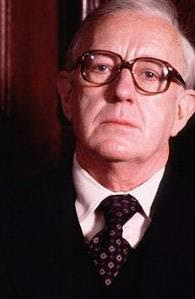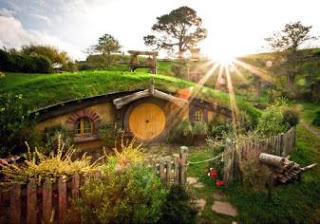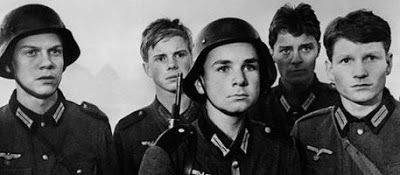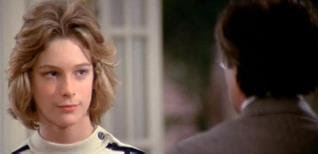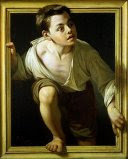For many of us in this Story Telling Group I imagine that “finding your voice” could easily be a metaphor for our individual coming out, an emerging from the dark. A truth is implied in finding one’s coming out voice and that truth is unable to flower until we start to let our queer flag fly. Of course, for many of us coming out is in some respects a lifelong process. It is hard to imagine that we simply woke up one day and said: “I am out.” Rather the coming out adventure often has many fits and starts. We eventually find ourselves in a space where we can easily find our true voice in nearly any situation. It is though something, even today, not always spoken out loud since a protective common sense often dictates whom we tell and whom we don’t.
I’d like to share an example of a lesbian friend in San Francisco finding a voice in part through her poetry. This woman’s name is Tova Green and she is a Zen priest at the San Francisco Zen Center (SFZC). In addition to her many teaching and administrative duties at the SFZC she was the co-founder of Queer Dharma an offering of the Zen Center since 2009.
During most of my extended sojourns to the City by the Bay I attend the Zen Center when I can made easy by the fact that it is located at the corner of Page and Laguna literally out the backdoor of the B&B. I most often participate in the evening Zazen session and occasionally the monthly Queer Dharma gatherings. It was at a Queer Dharma session that I encountered and struck up a budding friendship with Tova. On my most recent visit in September she again related her love for poetry over brunch, a wonderful trait it seems very common with many lesbians. Also shared was one of her own poems written about an event we were both made very sadly aware of that occurred on the night of January 9th 2015.
I was staying at the Inn that night with a dear friend from Denver named Clark. Clark and I have been friends since 1989 and share an unbreakable bond having been present for each other at the deaths of our partners from AIDS, his dear Phil in 1994 and my David in 1995. I had invited Clark on this trip to see the engraving of Phil’s name up in the AIDS Grove in Golden Gate Park. I had already had David’s name put up there the year before.
As was the case so often I was asleep early in the evening that January night but woke to the sound of what I first thought was firecrackers. It was a rapid staccato of noise that just didn’t really seem like firecrackers soon eliciting a sense of dread and quite frankly an emerging fear deep in the pit of my stomach. My worst fears were soon confirmed with the sound of many police and emergency vehicles arriving on the scene at the corner of Page and Laguna again right out the back door of the B&B and very visible from the first-floor bay window facing west.
What had occurred was a shooting, thought to be gang-turf related that left four young men dead at the scene. The probable semi-automatic weapon that was used allowed the perpetrator to snuff out four lives in a matter of seconds. An event that barely registered outside of San Francisco, since the cut off for significant media attention for a “mass-shooting” in America these days is five murders not just four.
We watched with disbelief and numbness as at least one of the victims in a body bag was loaded into an ambulance. Knocks at our front door and short interviews with police and homicide detectives soon took place. We were only able to offer after the fact partial accounts. The shooter or shooters were gone from the scene before we got to the window and realized what had happened.
By the next morning a makeshift memorial of flowers and candles had appeared at the lamppost directly out and across Page Street from the Zen Center. Living at the Zen Center, Tova was very aware of the tragedy that had occurred that night. She recently shared with me the poem she had written about that night. I am quite moved by how beautifully she was able to find her voice to acknowledge that very dark event on a dark winter night right on the doorstep of a place dedicated to compassion and meditative solace. Her poem in remembrance is titled “Prayer”.
Prayer by Tova Green
For Yalani Chinyamurindi, David Saucier, Harith Atchan and Manuel O’Neal
When my car was stolen
I remembered the four
young men, shot and killed
in a stolen car double parked
at our corner. It was nine
on a cold Friday night.
One was on his break
from work, catching
a ride with friends
to cash his paycheck.
The four had grown up
nearby, I learned,
when I joined their mothers
in a candlelight walk and saw
the wilting bouquets, photos
taped to a lamppost,
flickering flames enclosed
in glass on the sidewalk.
A girl gripped the lamp post
wailing—I want my brother back.
The next Mothers’ Day I stood
again with those women
on the steps of City Hall
and heard them tell their stories.
I’ll never know who
stole my car or what they
did with it before they left it,
wrecked, across the Bay.
I pray it wasn’t used
in an act of violence. I pray
for the safety of those
who stole it, knowing
their mothers pray for them
night and day
© 23 October 2017
About the Author
I was born in La Porte, Indiana in 1949, raised on a farm and schooled by Holy Cross nuns. The bulk of my adult life, some 40 plus years, was spent in Denver, Colorado as a nurse, gardener and gay/AIDS activist. I have currently returned to Denver after an extended sabbatical in San Francisco, California.

